What it’s like to convert to Islam – when everyone thinks you’re a terrorist
'They are angry because Isis has hijacked Islam, and the real voices of Islam – who have no truck with this kind of violent extremism – have been sidelined'. The Indepedent explores the challenge of becoming a Muslim in modern Britain
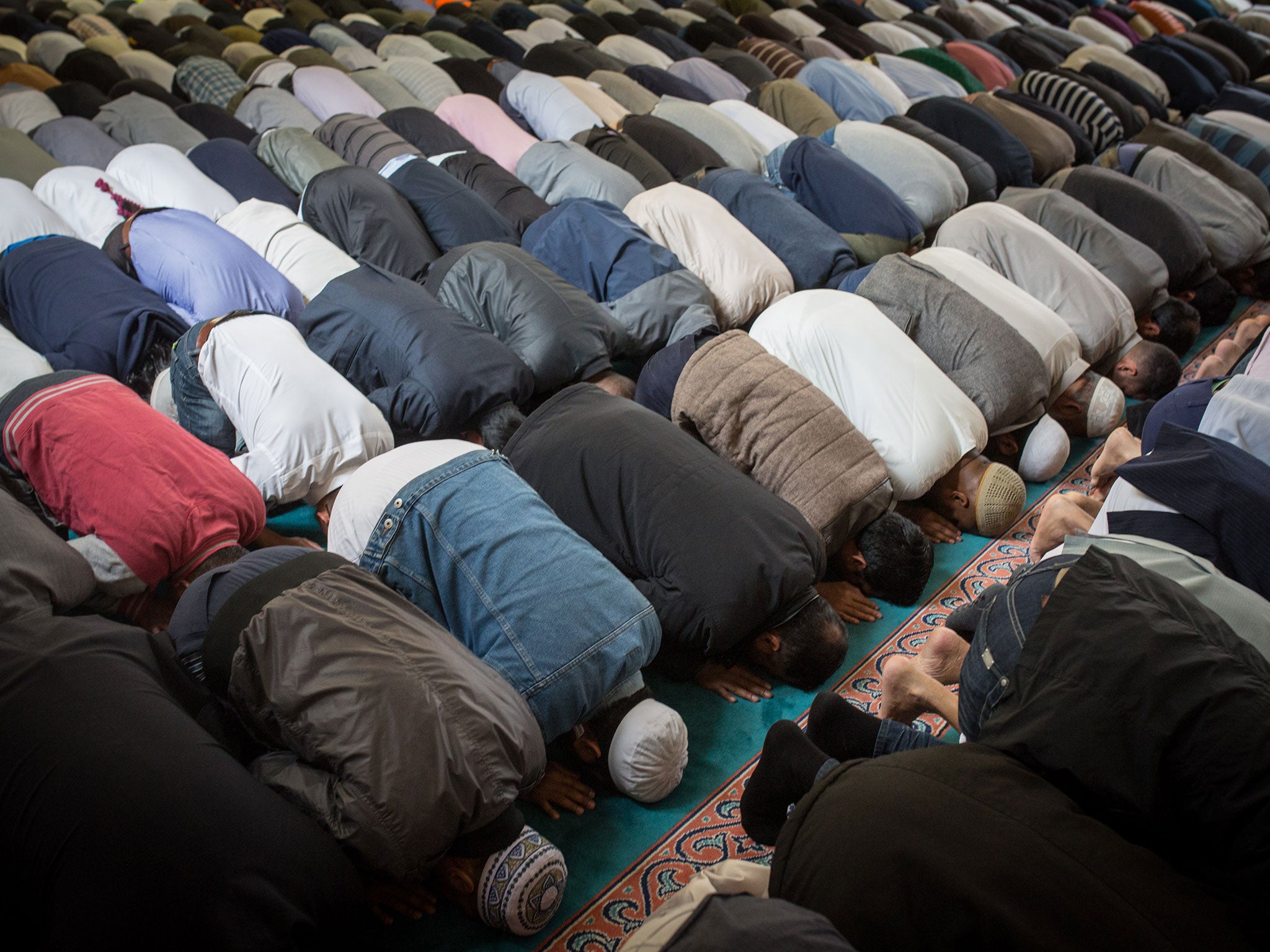
Your support helps us to tell the story
From reproductive rights to climate change to Big Tech, The Independent is on the ground when the story is developing. Whether it's investigating the financials of Elon Musk's pro-Trump PAC or producing our latest documentary, 'The A Word', which shines a light on the American women fighting for reproductive rights, we know how important it is to parse out the facts from the messaging.
At such a critical moment in US history, we need reporters on the ground. Your donation allows us to keep sending journalists to speak to both sides of the story.
The Independent is trusted by Americans across the entire political spectrum. And unlike many other quality news outlets, we choose not to lock Americans out of our reporting and analysis with paywalls. We believe quality journalism should be available to everyone, paid for by those who can afford it.
Your support makes all the difference.Peter was an atheist, happily married in what he believed to be a very loving, caring, thoroughly non-religious relationship.
He believed that his wife and family prided themselves on tolerance and free discourse, and people's right to do and think what they wanted as long as that didn’t unfairly impinge on the rights of others.
But when Peter converted to Islam, and in spite of his keeping it low-key with no real outward displays of his faith, his “very open-minded” partner could not live with the change and divorced him, leaving him heartbroken.
This is one of the most moving stories heard by Professor Yasir Suleiman for Cambridge University’s new study into the reasons men in Britain have for becoming Muslims, and the challenges they face.
“This was a very hard story to listen to,” Professor Suleiman told The Independent, “because it shows that sometimes our commitment to tolerance, and to giving people the freedom to believe what they want, when tested is found wanting.”
Peter (not his real name) was one of 50 men taking part in the 18-month project at Cambridge’s Centre of Islamic Studies, and his case highlights the kinds of prejudice felt by almost all new converts in Britain today.
Professor Suleiman said one of the most significant findings of his study was the extraordinary range of different routes people took to come to Islam.
Many found faith through an interest in music, architecture, food or art, he said. Some converted following “revelatory dreams”, others after meeting someone they loved, and one even became a Muslim himself despite having never met another Muslim in his life.
“We are in an age of modernity, where secularity is the dominant social and political framework for living our lives,” Professor Suleiman said. “And within that, Islam is seen to be oppressive, to be violent, to be out of tune with the rationality of the modern world.”
“Yet in spite of the dominance of this secularity, there are still these very interesting, very intelligent people who find that faith gives them answers, that they are willing to head in that direction – and they find their home in that journey is Islam.”
Despite their different backgrounds, the men in the study were also united in the view that prejudice against Islam has grown in recent years, and that the media has had a part to play in that.
Peter said his wife might have been able to live with his finding faith if he had converted to Buddhism, for example. It was not just converting that meant she left him, but specifically converting to Islam that was the big issue, because of the "negative image" the religion now has.
Professor Suleiman heard from men who were happier to have their families explain their newfound faith as a “conversion of convenience” – perhaps because they wanted to marry a Muslim woman – rather than a true “conversion of conviction”, such is the nadir in public opinion about the faith.
And the converts were incensed above all else by the fact that a tiny, extreme minority of backward-thinking Islamists has tainted the view of the world on their faith and made their lives harder.
“They are really very upset about the fact that they have found answers in Islam, and suddenly now their experience is coloured, maligned by the existence of radical extremists and terrorists,” Professor Suleiman said.
“They are angry because they think these people have hijacked Islam, and that the real voices of Islam – who have no truck with this kind of violent extremism – have been sidelined.”
The Independent spoke to some of the converts in the anonymous study who were willing to come forward and share their stories.
Alan Rooney
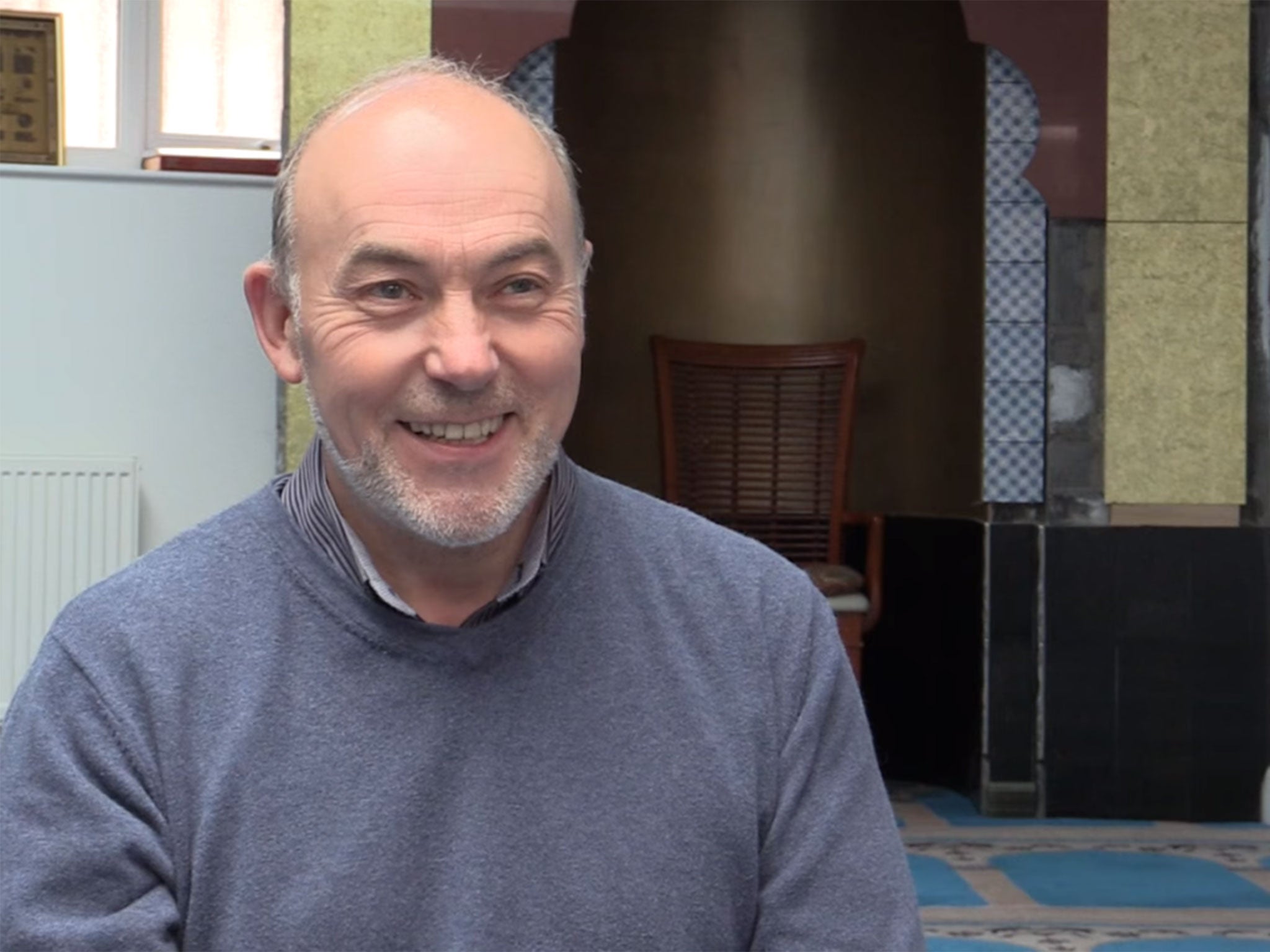
Inverness
“I formally converted to Islam in September 2014, though I was practising for a number of months before that. It was all done just through reading the Qur'an learning basic prayers through a book and looking online for some pointers – all before I had any actual contact with any Muslims.
“I am somewhat sheltered up in Inverness, but I am very aware of what goes on and the whole issue of radicalisation has had a quite demoralising effect on me and my fellow Muslims.
“Especially when there has been a terrorist incident and rhetoric is high, you can visibly see the effect the constant barrage of negativity has on people around you. Their spirits and their shoulders sag.
“I think this is because you feel pretty helpless to do anything to combat the negativity or to challenge the perpetrators of violence. You feel so helpless.”
Mark Barrett
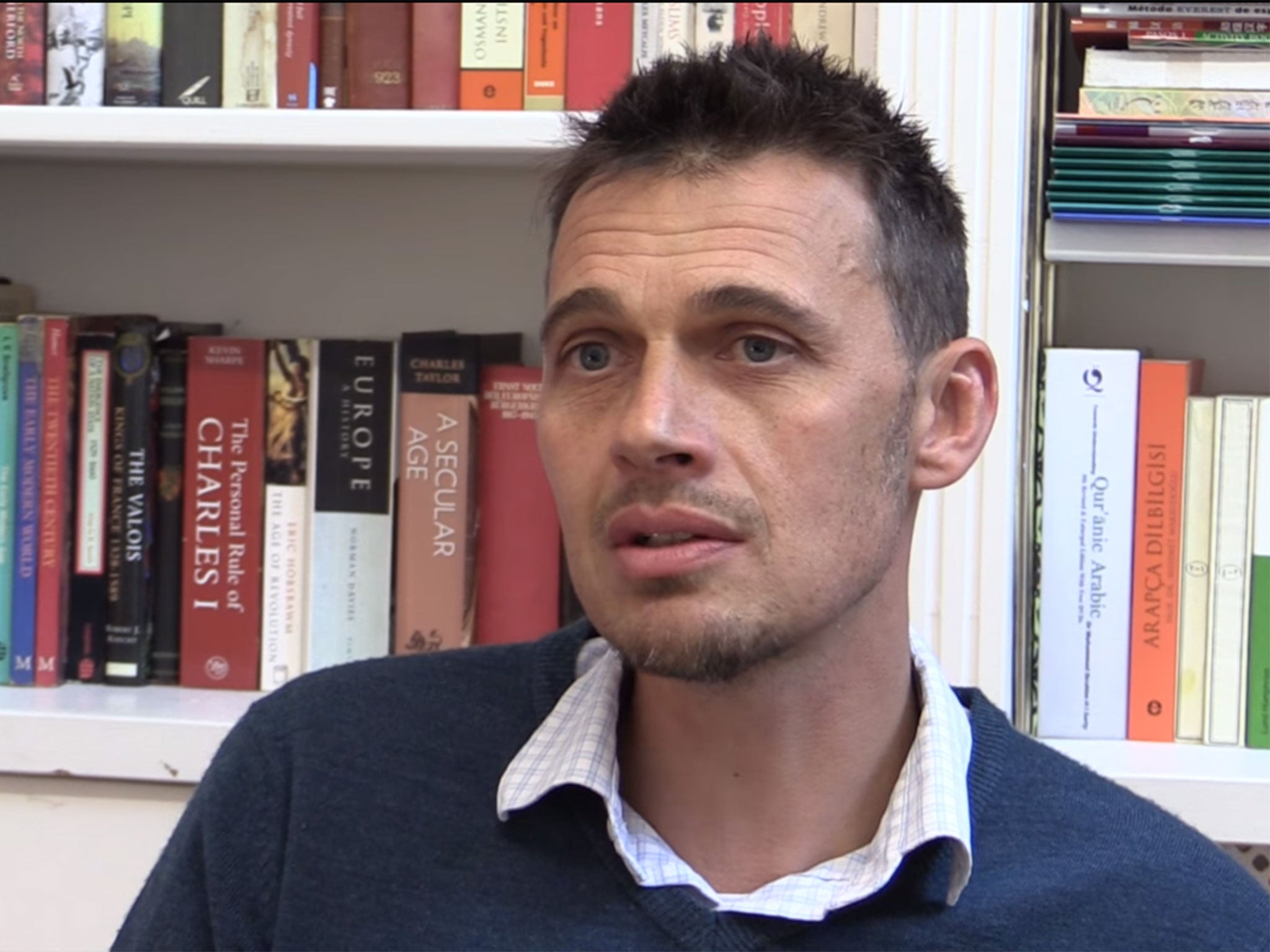
Norwich
“I was always a believer in God, but dissatisfied with Christian theology, and the poetry of Jalaludin Rumi inspired me to research Islam more deeply and read the Qu'ran.
“It has changed my life. Essentially Sunni Islam is about emulating how the Prophet Mohammed and his companions lived together and ran things in Medina together in a way that is appropriate to the time and place we live in.
“Unlike with some other converts, my family really appreciate and support how my faith has been good for me as a person and as a member of the family.
“The biggest challenge has been getting beyond all the misinformation, the ideology and sectarianism and the public interpretation that that’s what the religion is all about.
“For me, if Islam is to do its work we need to highlight the positive, and stop giving so much credence to the idea that groups like Isis in any way represent Islam. They do so as much as the Catholic Inquisition represented the teachings of Jesus, or the French Terror represented democracy and the rights of man.”
Maurice Irfan Coles
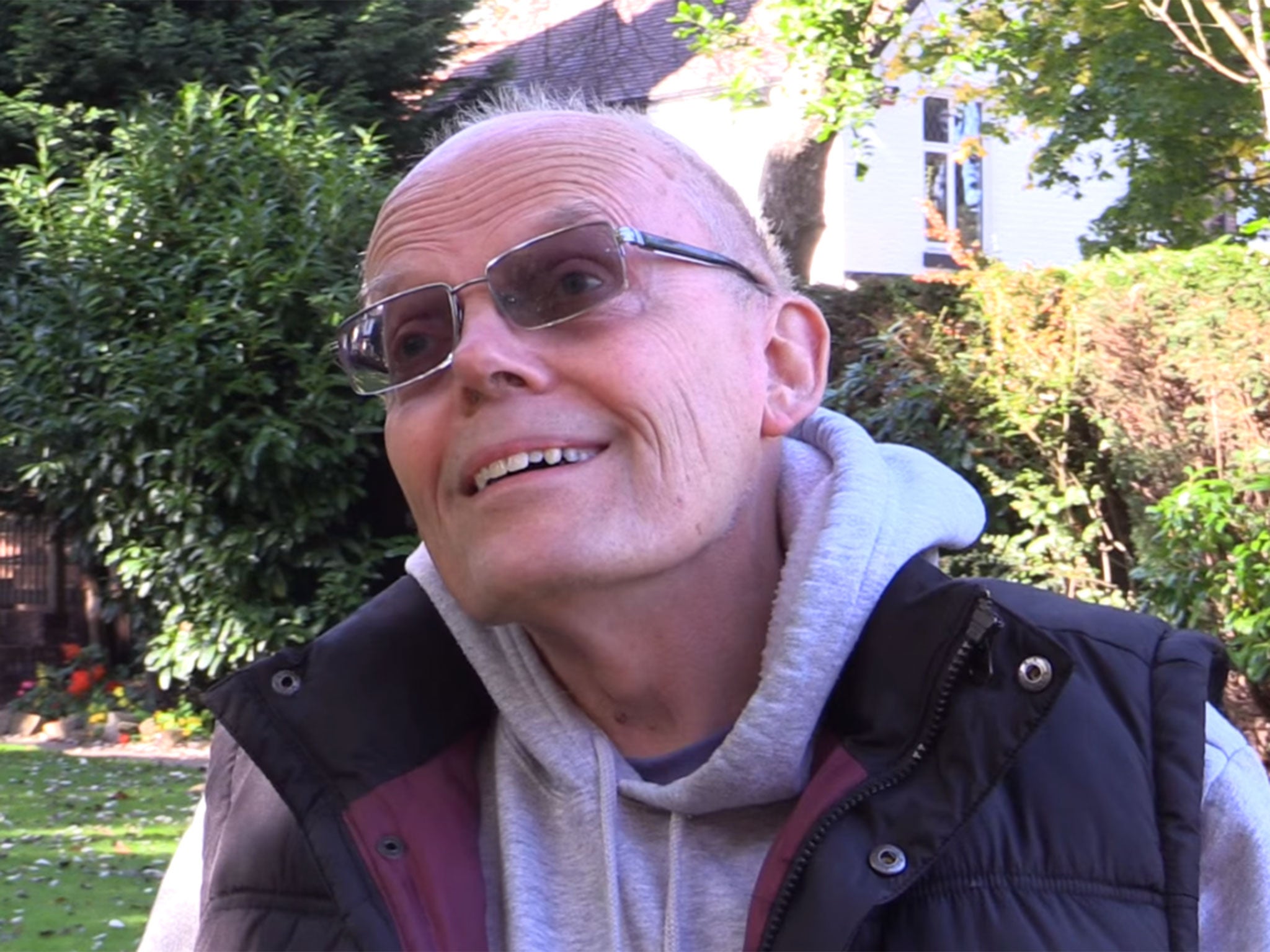
Birmingham
“I became a Muslim in 1999, seeking a spiritual path to satisfy my desire to connect with something greater than myself. I feel now that after a long search, I am finally at home.
“Being a man from a Christian background married to a Hindu, my biggest challenge at the start was the responses of my community. As it happened, people have generally been most supportive, and interested in the reasons for my conversion. Generally the community’s responses have been compassionate.
“The Jihadis have the best lines, like Milton’s Satan. Their violently simplistic message has immediate appeal to the media.
“Their warped ideology elicits a frightening degree of negative responses towards Islam generally, which they then feed on further. Islam’s central message of compassion and peace does not lend itself to un-nuanced, sensational journalism.”
Abdulmaalik Tailor
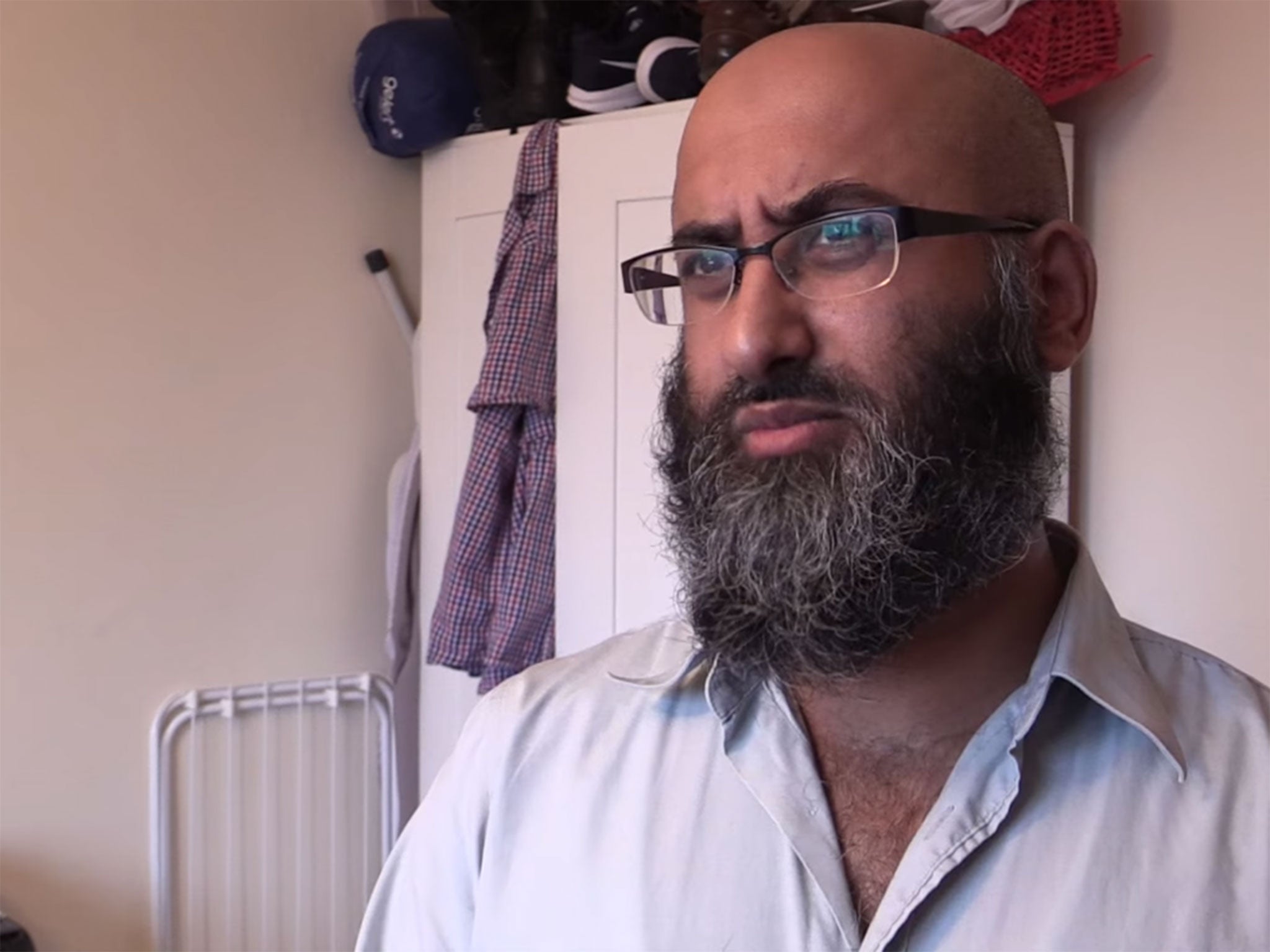
London
“A number of things happened to me when I embraced Islam, more than 20 years ago – it was a very challenging time and a period of my life I will never forget. I did suffer physical abuse from my family and they emotionally abused me as well.
“You find with myself and with other brown converts, it always goes back to the issue of partition, between India, Pakistan, Bangladesh. They try to challenge the whole concept and say we’ve been ‘brainwashed’.
“In my case I was given an ultimatum. I had to get out, that’s what my father said, give up the religion or get out. I was 18 at the time.
“A year after my father passed away and there was an expectation that I had to perform all the Hindu rituals as the only son. I couldn’t do it, and that itself became a challenge.
“There seems now to be a concentration on radicalisation – or what is deemed to be radicalisation. If they happen to be a convert then that’s what they are going to focus in on.
“However if there’s successful Muslim converts who have contributed to society, to Britain, and partaking in many different projects, they won’t get highlighted by the media and you wonder why do that – why the media have a set agenda to demonise us.”
Ahmed Paul Keeler
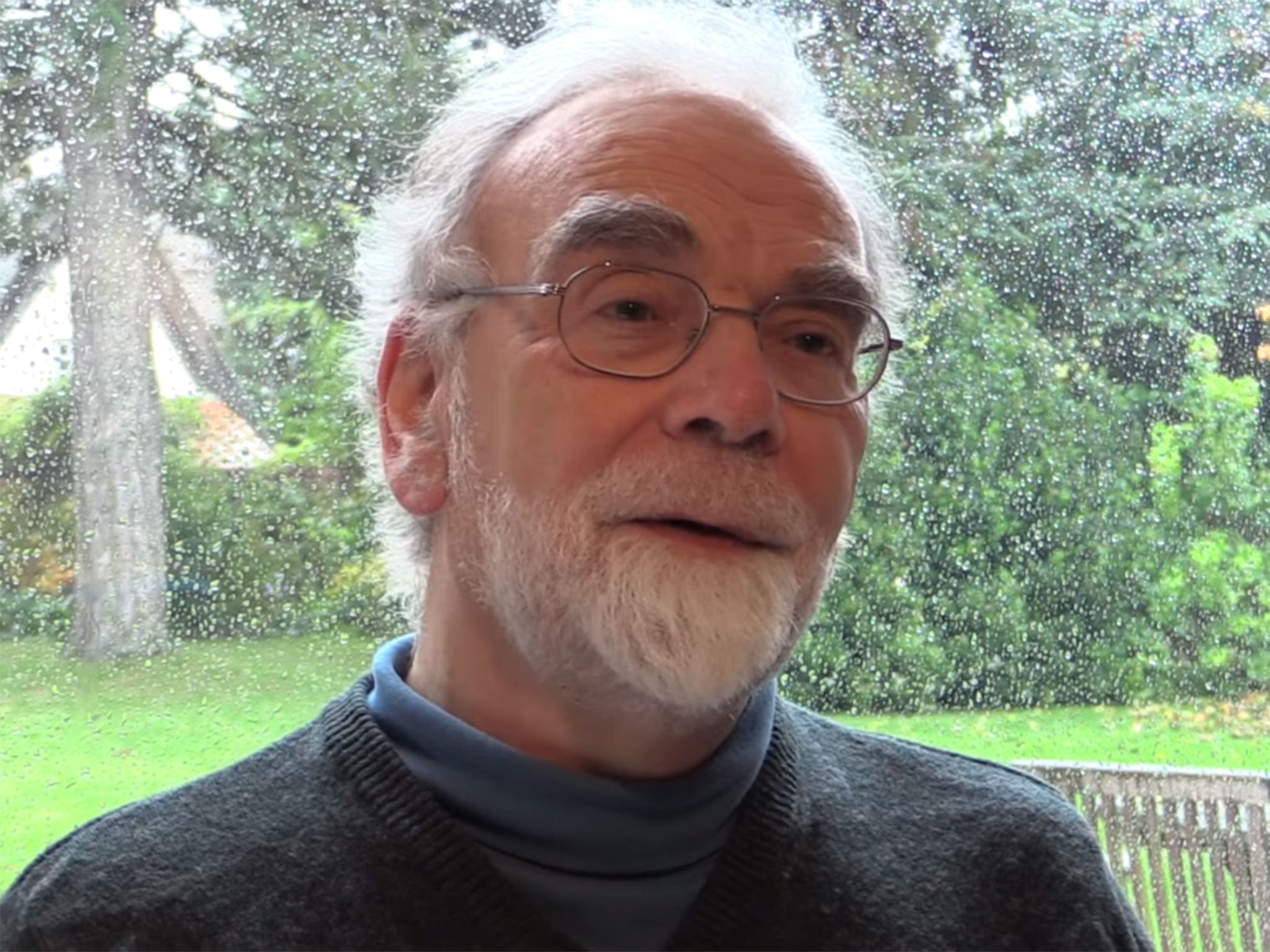
Cambridge
“I became a Muslim in 1975, so I’ve been a Muslim now for 40 years, and the change in terms of people’s relationship with Islam is phenomenal.
“When I became a Muslim, Islam wasn’t an issue. Now, 40 years later, it is the big issue.
“It was really a very good time to become a Muslim when I did, because there wasn’t this kind of antagonism and fear which people have towards Islam.
“I think that’s been the biggest change, the fundamental change.”
Warren (Raiyyan) Clementson
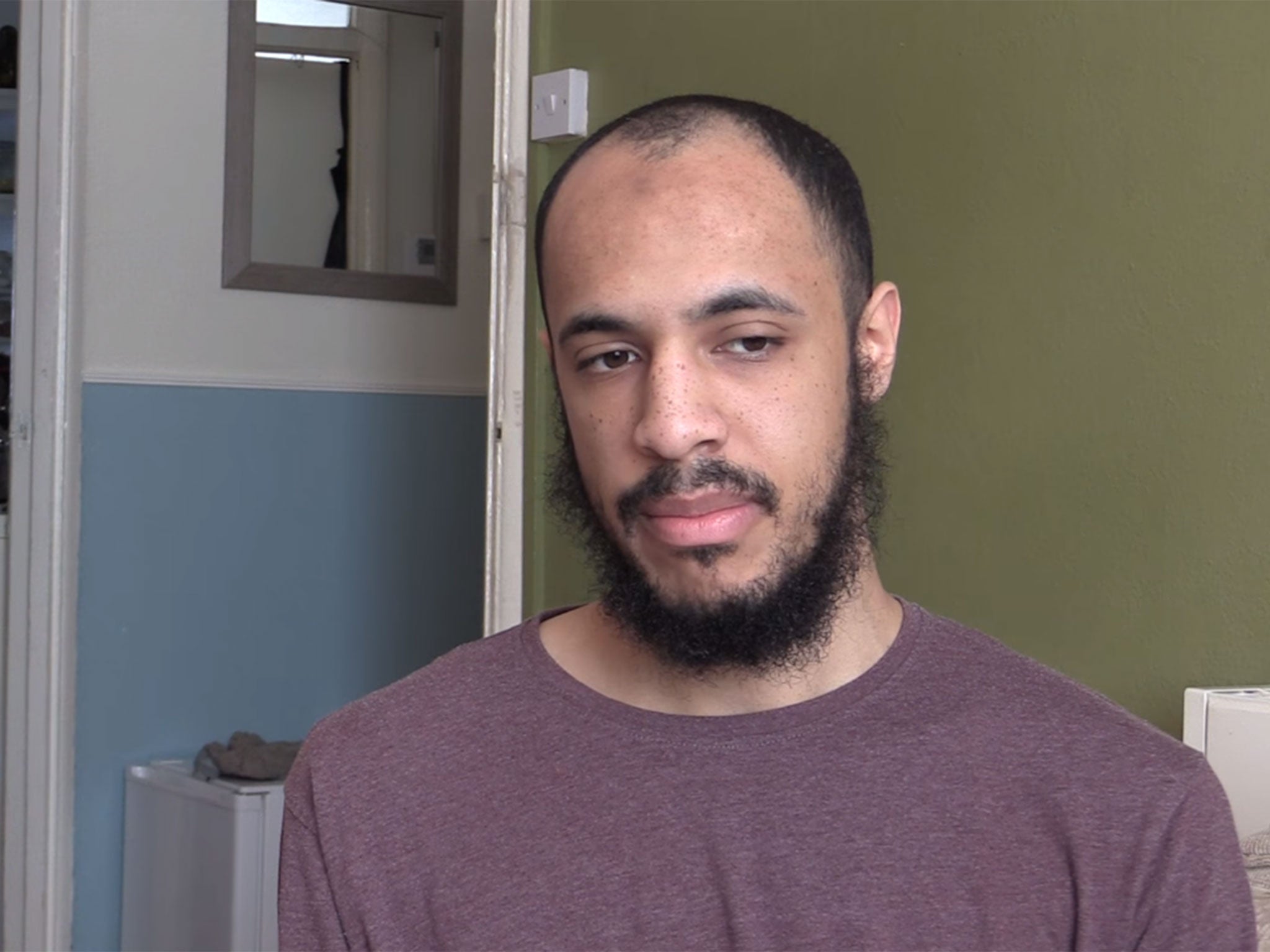
London
“Generally speaking, when I see converts on TV it’s normally the case that they’ve been radicalised, they’ve been involved in extremist activity, whether nonviolent or violent.
“For me personally that’s a double whammy – first the negative portrayal of Muslims as a whole, then within that there’s the sub-context of the convert community being portrayed in a radical light.
“[The perception] is that they are more susceptible to ideologies of violence.
“Having been a convert myself and having met so many other converts, this is a fallacy.”
Matthew Burgoyne
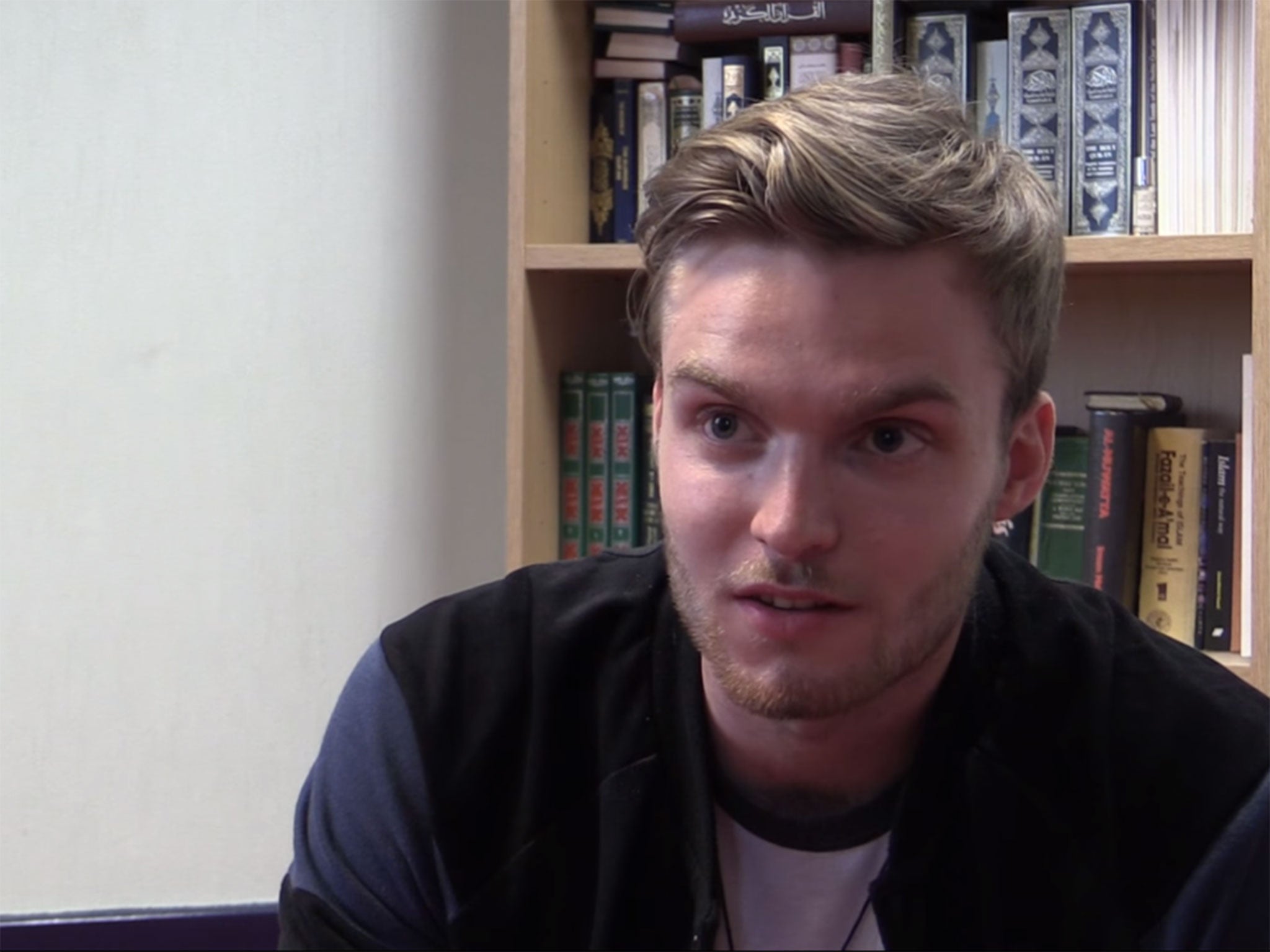
Liverpool
“My family growing up always allowed me to be open-minded – I never thought of myself as a close-minded type of person.
“They always taught me to be welcoming to anyone and to think about things freely, so I think that did influence me at the age where I started thinking about religion, to be able to explore rather than be set in my ways.
“However, when I did tell them that I had become Muslim it was a big shock, and it brought out some hidden prejudices.
“It took a while for things to settle down. But as time goes on it becomes more normalised, and the more they see that I’m still their son and I’ve not changed apart from my faith, the more they can understand and cope with my decision.”
Matthew, Ahmed, Warren and Abdulmaalik were speaking to Cambridge researchers. For more interviews conducted as part of Narratives of Conversion to Islam in Britain: Male perspectives, click here.
Join our commenting forum
Join thought-provoking conversations, follow other Independent readers and see their replies
Comments